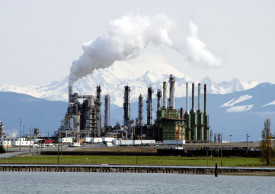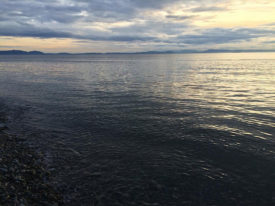An important but hardly discussed trend in many of Cascadia’s natural ecosystems is the shrinking of not only populations but also individuals of many species. From our trees to our bears to our salmon, the biggest individuals are far smaller than they used to be.
A Christian Science Monitorarticle adds a worrisome twist to this phenomenon of ecological downsizing. It’s not just that humans have eliminated the largest individuals—the trophies—in each population. It’s that we’ve redirected evolution by creating conditions in which survival of the fittest gives way to survival of the smallest. And of the long run, smallness may lead to extinction.
Ecological downsizing was a theme of State of the Northwest in 1994 and again in 2000:
Once dominated by biological giants, the natural endowment of the Pacific Northwest has been belittled, made small, to a degree that few people appreciate. Stupendous lowland old growth has given way to stands of trees never destined to reach the age or size of their forebears. Old-growth forests remain mostly on thinner soils, steeper slopes, or in colder climates lacking the productivity and diversity of the lost lowlands.
Just as young trees have replaced old-growth forests, grazing has converted tall perennial grasslands into swaths of short annual grasses and invasive species. Like tree farms cut every few decades, grasslands are grazed well before their longer-lived species mature, and seldom rested long enough
to recover the diversity that comes with age.Chinook salmon off the Oregon and Washington coasts are, on average, half the size of their ancestors 75 years ago. Likewise, sturgeon are smaller and less abundant. In many taxonomic groups, the largest species have been the most depleted: grizzly bears among the Carnivora, humpbacks among the whales, lingcod among the bottomfish. Former Seattle Times writer Bill Dietrich’s observation on forests is apt for Northwest flora and fauna as a whole: “We have downsized our vegetation and are living in a pygmy world.”







